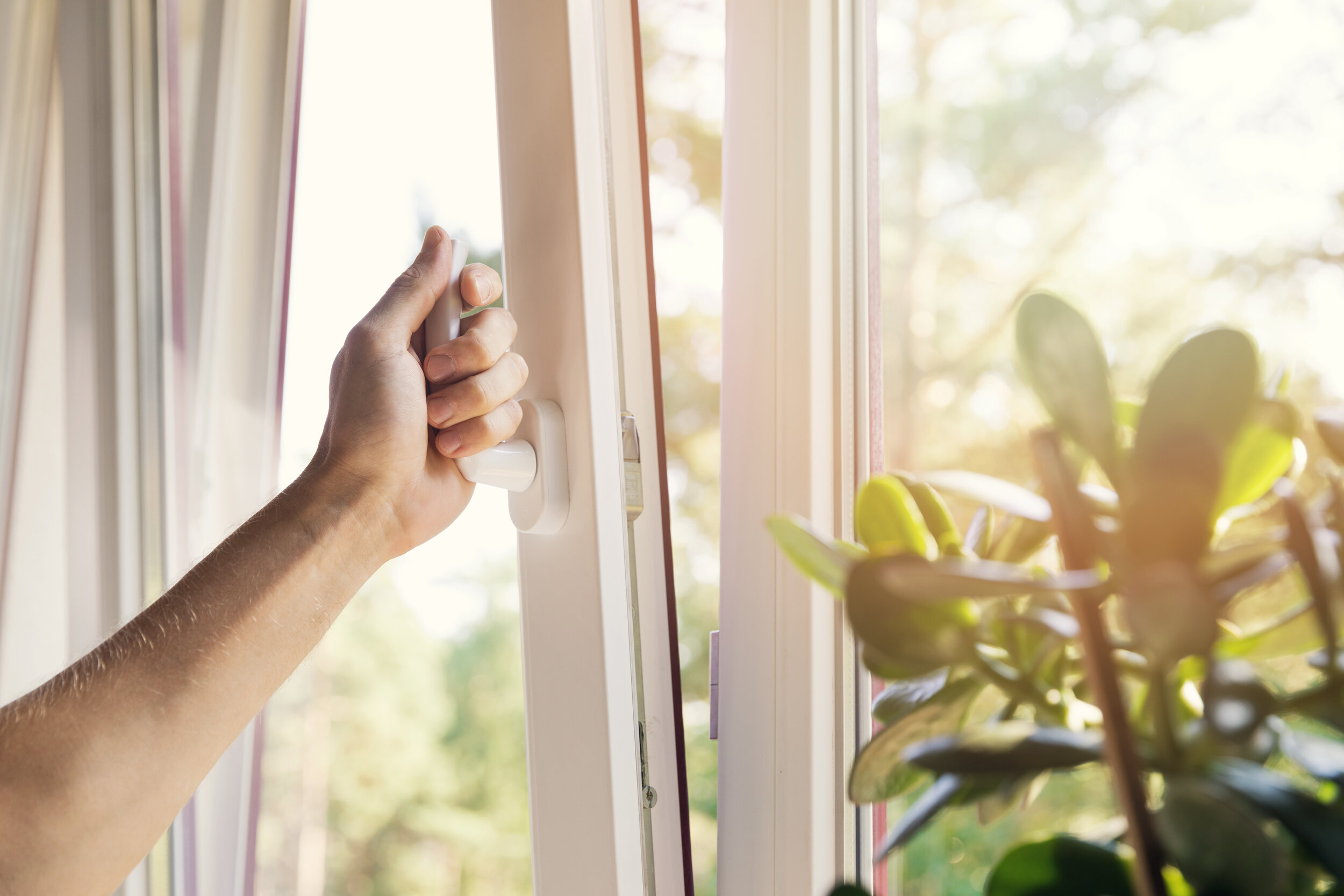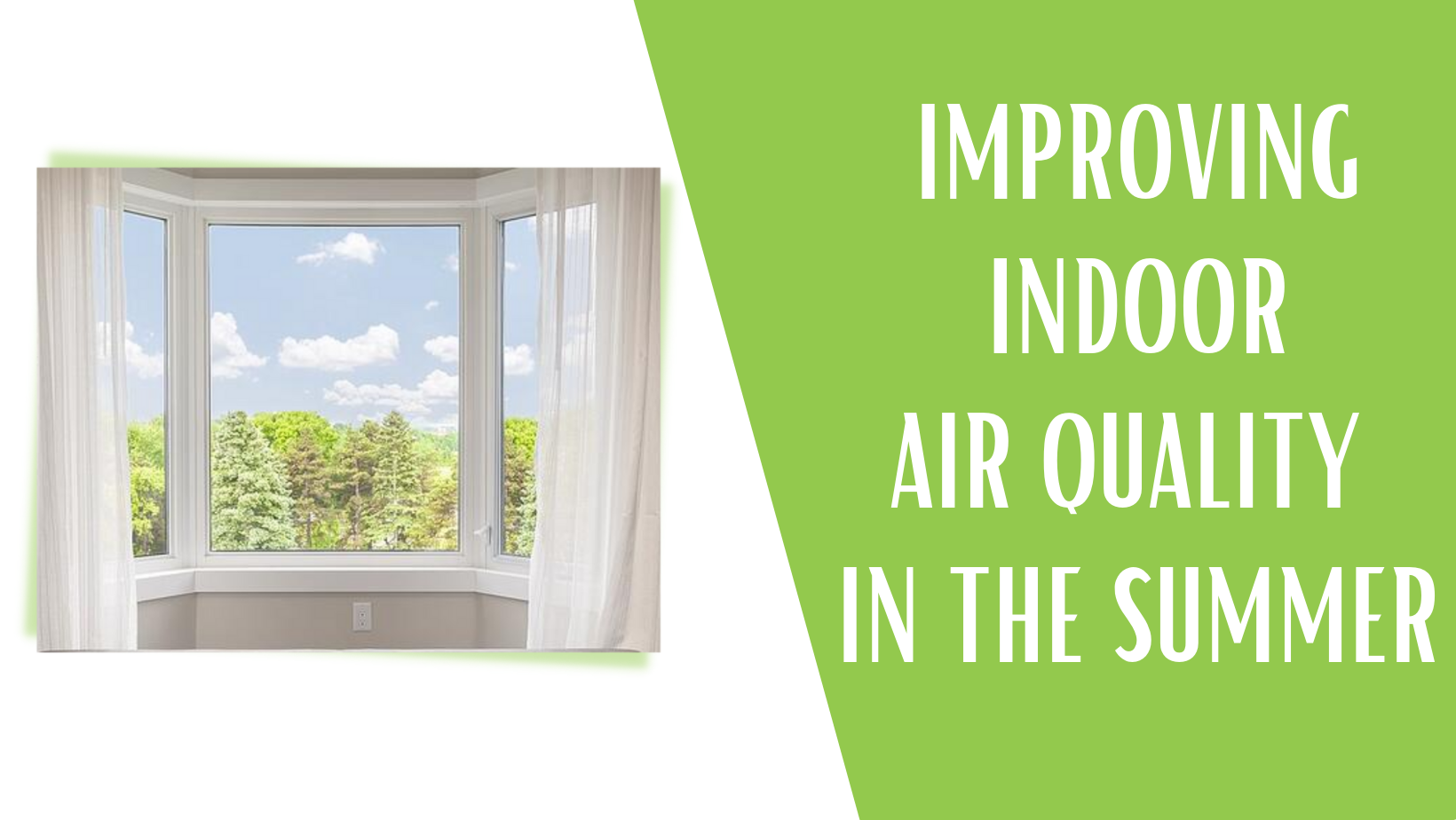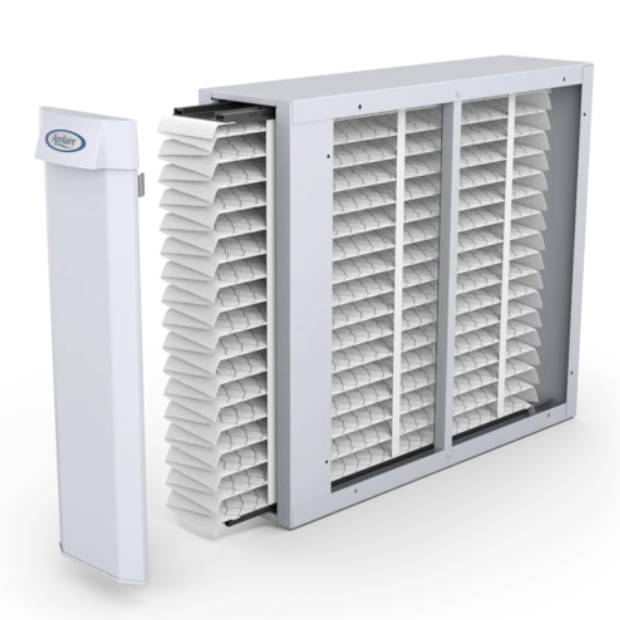Maintaining healthy levels of indoor air quality, or IAQ, is important year-round. In the summer, though, there are different factors that may affect your home's indoor air quality. Understanding when your home's IAQ levels are too low and the various ways to strengthen the air quality is important to staying healthy.
Signs of Poor Indoor Air Quality
Health problems
Health issues such as unexplained eye, nose, and throat irritation, headaches, fatigue, and even respiratory issues may be due to poor IAQ In your home. If you notice that these problems worsen when at home and subside when spending time an away, it's probably time to make changes to the environment in your home.

Unusual odors
If you smell unwelcome odors like damp, stale air, pollutants or mold may be growing inside your home and tainting the indoor air.
Poor ventilation
If you notice condensation on your walls or windows, musty-smelling air, or if there is visible mold growth, this could be a sign of poor ventilation in your home.
Mold, dust, and humidity levels also increase with the temperatures during summer. The rising mold and dust levels will affect you while inside, especially if you have not had your ventilation system cleaned. Air conditioners can blow this dust inside the air ducts throughout the building and irritate those inside.
Older homes
Some materials used in older homes may include materials known to emit harmful pollutants. Construction methods used in the past may also worsen ventilation problems.
Tips to Improve Your Indoor Air Quality
Maintain good air circulation
Speaking of older homes, they may be providing you with a key benefit as well: air circulation. Older homes often have gaps and cracks in windows and doors that allow air to escape. While this is a nuisance when it comes to wasting heated and cooled air, these openings allow dust, pet dander, and cooking fumes to escape outside and fresh air to enter your home.
On the other hand, if you live in a newer, well-sealed home, polluted air is staying trapped inside when your windows and doors are closed. A good way to combat this is to install an air purifier. Air purifiers are designed to reduce and destroy airborne and surface contaminants. UV Light purifiers are common and can be very effective at killing bacteria, mold, and fungus.
The Air Scrubber by Aerus is revolutionary air purifier that substantially reduces odors, visible smoke from the air, and microbial populations on surfaces, commonly found in the average home or office environment.

Another easy way to maintain good IAQ is to use your kitchen's exhaust fan. Cooking is a source of many pollutants, and using the fan will help filter them out and keep the air clean.
Open the windows

On days that are warm but not too hot, opening the windows is a great way to let fresh air into your home. The EPA estimates that the concentration of some indoor pollutant are two to five times higher than typical outdoor concentrations. By opening windows/doors, you can let out trapped toxins, emissions from household appliances, and allergens from pets and dust mites. This will, in turn, lessen your chances of getting sick.
An added benefit is that on mildly warm days, opening your windows will create a cross breeze and lessen the need for AC. This way, you can save energy and money too.
Keep your home clean
One of the simplest ways to improve the air quality in your home is to dust often. Cleaning furniture and things like ceiling fan blades that you don't think about often will keep the dust from circulating throughout the air.
A note about ceiling fans: The ceiling fan direction in summer should be counterclockwise to help create a downdraft, which creates that direct, cooling breeze. While ceiling fans don't really improve IAQ, they somewhat help dilute the pollutants throughout the space.
A big part of cleaning also includes keeping your HVAC system tidy. You can start by changing the system's filter(s) once every three months at a minimum. Some people change theirs once a month too. It all depends on your home and the system. This simple tip will not only enhance indoor air quality, but also increase your system’s lifespan and improve efficiency.
The next important step is to schedule your annual air conditioner tune-up. An AC tune-up from your local HVAC contractor will consist of cleaning the inner coils which is important to eliminating mold and mildew. They will also clean the blower motor and ensure the condensate drains aren't clogged. Not only will the tune-up keep your HVAC system and air inside your home clean, but it will also ensure your system is running properly and safely, which will save you money and prevent breakdowns. 

Install a dehumidifier
Summer weather can be humid, especially in Philadelphia and throughout the Delaware Valley. Not only is the humidity uncomfortable, but it also creates a good environment for dust and mold. Research has shown that keeping relative humidity between 30% and 60% minimizes adverse health effects, like allergies and asthma.
One way to reduce humidity levels in your home is to use a dehumidifier. Proper humidity levels minimize survival rates of bacteria, viruses, fungi, and mites. Humidity control also reduces the risk of respiratory infections and allergies.
Upgrade your filtration system
Proper filtration of both the air in your home and incoming ventilation air is key to removing particulates from the air. High-efficiency filtration systems, like the Aprilaire 1610 Air Filter, can catch more pollutants than your standard paper furnace filter. The Aprilaire Filter has an estimated efficiency of a MERV 16 filter on virus sized particles, up to 96%. This, paired with a high quality purifier like the Aerus Air scrubber, work together to leave very minimal pollutants in your home.
If you live in the Delaware Valley/Greater Philadelphia area and would like to find comfort within your home, visit our website or give us a call at 215 - 245 - 3200 to learn more.







